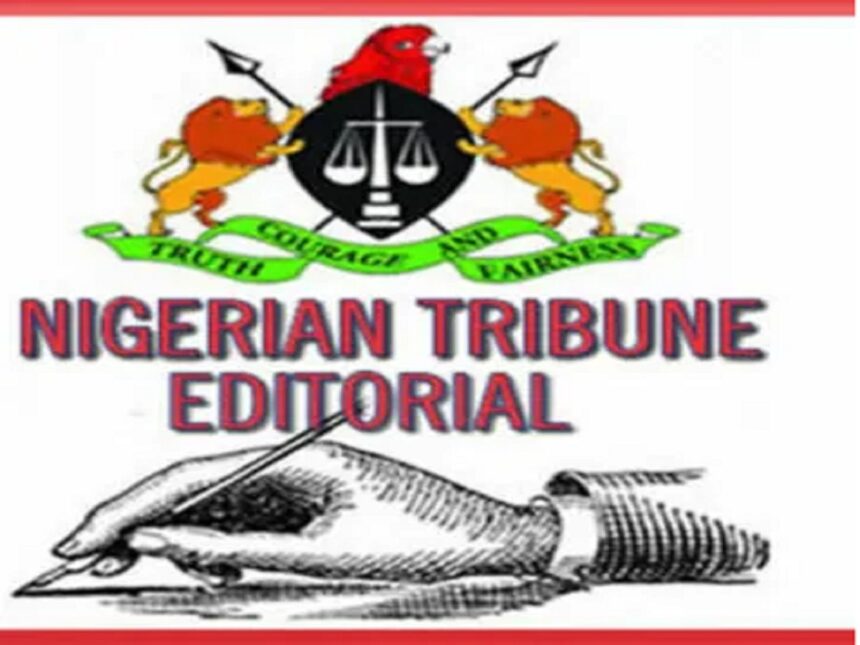
TWO years into the Bola Tinubu administration, it has become clear, more than ever, why Nigeria requires a fundamental tinkering with the structure of governance to deliver optimum results. In the aftermath of the removal of subsidy from petroleum and the floatation of the naira, Nigeria’s poverty situation spiked, and the N70,000 minimum wage agreed with the organised labour after long negotiations failed to guarantee a decent living for workers. It is a fact that as the administration marks two years in office, the cost of living remains prohibitive, and insecurity has forced many farmers to abandon food production as terrorists of different hues launch attacks everywhere. Per the World Bank, the poverty rate among Nigeria’s rural population has reached an alarming 75.5 percent. The power sector is also in shambles. Apparently, the policies need to be tweaked to save the generality of Nigerians from immiseration and despair. But more than that, fundamental changes are also required to make the country fit for purpose.
To be sure, the administration has harped on the steps to reinvent the economy and address poverty. According to the Minister of Budget and Economic Planning, Senator Abubakar Atiku Bagudu, Nigeria’s economy is witnessing a significant turnaround, driven by bold reforms, improved coordination, and a renewed focus on national priorities. Hear him: “We have seen four quarters of successive economic growth, stability in foreign exchange, and appreciation by Nigerians and the international community. Rating agencies have consistently appreciated what we are doing. We have seen investors from Brazil, Belarus, and Saudi Arabia increasingly entering our agricultural space. The world economic community and multilateral institutions are putting more faith in our economy. For the first time in 25 years, Nigeria is refining oil.”
His counterpart in the Ministry of Solid Minerals Development, Dr Dele Alake, has been keen to stress the fact that the Tinubu administration’s new policy of local value addition and a tightened licensing regime attracted over $800 million in processing projects last year, and that the sector also generated over ₦38 billion in revenue in 2024, up from just ₦6 billion the previous year, despite receiving only 18 percent of its ₦29 billion budgeted allocation. Alake said 250 mining cooperatives had been established nationwide to absorb informal miners into the formal economy. The administration is also harping on key road projects, including Abuja-Kaduna-Zaria-Kano Road, the Ninth Mile-Oturkpo-Makurdi Road; Sokoto-Badagry Highway; Abuja-Lokoja-Benin Road, Lagos-Calabar Coastal Highway (Phase 1): Enugu-Onitsha Expressway, Benin-Asaba Superhighway, Oyo-Ogbomoso Road, Bode Saadu-Kaima-Kosubosu Road, Enugu-Port Harcourt Expressway, Second Niger Bridge Access Road, Lagos-Ibadan Expressway and Bodo-Bonny Road. It says that in support businesses across the country, it established three funds, namely the Presidential Conditional Grant Scheme, FGN MSME Intervention Fund, and FGN Manufacturing Sector Fund, totalling N200bn.
As many Nigerians have pointed out, there have been positive changes in passport application processes and the Minister of Interior, Olubunmi Tunji-Ojo, has also rolled out e-surveillance for border security. It is also salutary news that in the bid to diversify the economy, sectors namely ICT, are bringing significant revenue for the government, which has been keen to make the impression that it is not depending solely on the oil sector to manage the economy. However, regardless of any achievements the Tinubu government or any other administration may point to, the fact remains that Nigeria as presently constituted cannot witness any fundamental change. While much of the challenges that the country continues to confront are rooted in irresponsible leadership, the fact remains uncontested that the fundamental changes required to make the country functional are yet to be made. For instance, as we have pointed out time and again, there is no way an ethnically, linguistically and religiously diverse society like Nigeria can be policed centrally. In this regard, it is disappointing that the Federal Government has recently scaled down action on state policing, with the effect that Nigerians continue to live in fear as terrorists go on the rampage on a daily basis, littering the land with innocent blood.
ALSO READ FROM NIGERIAN TRIBUNE: PDP labels Tinubu’s two years a ‘nightmare’
Recently, the president directed the creation of a forest guard unit to curb the onslaughts of terrorists who use Nigeria’s vast forests as a base for their nefarious activities. The president also recently directed an immediate and comprehensive overhaul of national security strategies, demanding urgent action to end the escalating violence in Borno, Benue, Plateau and Kwara states, saying that the senseless targeting of innocent Nigerians must stop. But while not condemning the president’s directive, it is important to point out that each day Nigeria continues to operate without state policing is a day that the government continues to put the lives of Nigerians in peril. Insecurity is at the heart of a lot of the ills that plague the country, and there is no getting out of the rut without decentralising the security architecture. It is time to have state policing.
In this regard, it is significant that an all-inclusive pan-Nigerian group, The Patriots, recently released part of a detailed programme for its forthcoming national conference designed to evolve an acceptable constitutional framework for the country. The Patriots’ agenda addresses questions regarding the most suitable system of government for Nigeria, appropriate tenure for elected political office holders, and the essentials of democratic federalism, questions which, we believe, the Tinubu government can begin to address using the report of the 2014 National Conference as a guide. Without prejudice to any new recommendations that may emerge from ongoing consultations and conferences by elder statesmen, the 2014 report contains a number of recommendations which, if well implemented, will assist in turning the country around.
WATCH TOP VIDEOS FROM NIGERIAN TRIBUNE TV
- Let’s Talk About SELF-AWARENESS
- Is Your Confidence Mistaken for Pride? Let’s talk about it
- Is Etiquette About Perfection…Or Just Not Being Rude?
- Top Psychologist Reveal 3 Signs You’re Struggling With Imposter Syndrome
- Do You Pick Up Work-Related Calls at Midnight or Never? Let’s Talk About Boundaries






